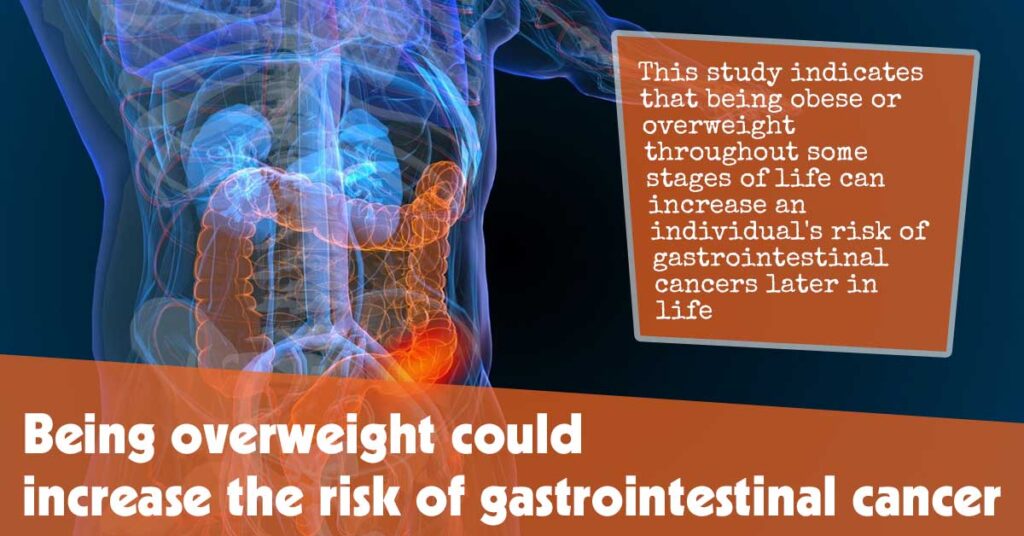The Association Between Excess Weight and the Risk of Gastrointestinal Cancer
Medical practitioners have repeatedly highlighted the significance of weight management to improving overall health, with one large study even suggesting it may lower risks of future gastrointestinal cancers.
Researchers conducted studies revealing that an obese or overweight BMI among early and middle adulthood is linked with an increase in gastrointestinal cancer risk, and regular aspirin use doesn’t seem to mitigate it in obese and overweight individuals.
Colorectal cancer is one of the three most frequently diagnosed cancers among US women and men. Although screening has resulted in numerous early stage detections, over 150,000 new rectal and colon cancer cases are identified annually.
As obesity rates worldwide are steadily on the rise and 70% of American population are considered either obese or overweight, understanding its relationship to long-term diseases like cancer is critical to improving public health.
This study shows that being obese or overweight during certain stages of life increases an individual’s risk of gastrointestinal cancers later on.
Researchers sought to gain a better understanding of how changes in BMI across several stages of adulthood could impact risk for gastrointestinal cancer.
Previous data were evaluated from 131,161 individuals who were previously enrolled in a randomized study that assessed the efficacy of screening examinations for ovarian, colorectal, lung and prostate cancer to reduce cancer-related mortality between 1993 and 2001 in individuals between the ages of 55-74 when enrolling.
Obesity is caused by the accumulation and buildup of white adipose tissue, leading to inflammation and immune cell dysfunction that can contribute to disease such as cardiovascular diseases such as stroke, metabolic conditions such as type 2 diabetes, and cancers involving fat cells.
Age 20 was taken as representing early adulthood for this analysis; middle adulthood began at 50; and those 55 or over were considered later adults.
BMI was calculated based on data derived from questionnaires completed by participants at original enrollment time at these age points.
Based on WHO standards, they were then classified according to underweight (with BMI of less than 18.5), normal (18.5 to 24.9), overweight (25-29.9 kg/m), or obese status.
Participants were also required to report how often aspirin or products containing aspirin were taken during the study, which then continued for 13 years.
Researchers found a significantly increased gastrointestinal cancer risk among obese and overweight individuals during early, middle, and later adulthood. An increase in BMI was also tied to an increased risk for both colorectal and non-colorectal gastrointestinal cancers; this correlation could not be altered through regular aspirin use.

